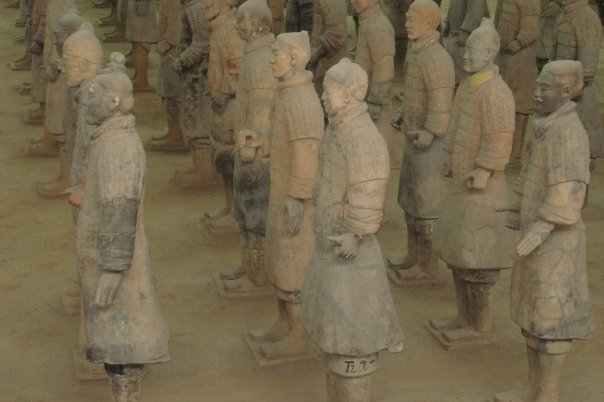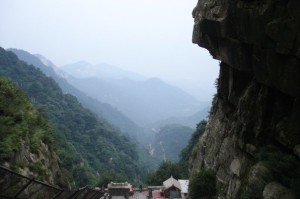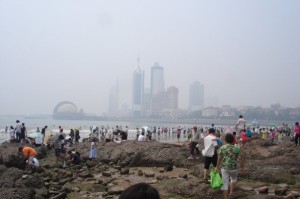Grad student asks: were you comfortable as a woman working in the Middle East?
Share this:Yes, I was. In the Levant (Lebanon, Syria, Turkey, and Jordan) I didn’t dress or act differently than I would have anywhere, and I’m not conservative by most measuring sticks. I’ll discuss below some slight changes I made while working in the more open Gulf countries (Kuwait, Bahrain, Qatar, the UAE, and Oman). If you’re going beyond those boundaries, I refer you to the advice of the Unaccompanied Lady.
|
In the Gulf (except Saudi Arabia) normal businesswear is fine, including skirts; on the evenings and weekends I covered my shoulders and legs to my knees. But aside from that, very little separated my experience in the Middle East from any other business interaction. Occasionally more conservative men would put their hand on their heart and bow rather than shake my hand, as they didn’t wish to touch a woman not related to them.
The women I interviewed usually wore headscarfs if not a full abaya, but I didn’t feel any pressure or judgment because I was dressed differently. However strange it may seem to my fellow Americans, people in the more conservative parts of the Middle East really seem to believe that many of the customs we find objectionable are ways of protecting, respecting, and/or empowering women. They don’t think women are stupid or incapable. They just consider being a woman and leader of a household as more important than career paths outside the home, for the most part. I did meet women at all rungs of the corporate ladder, from receptionists to government ministers. There are few, if any, professions that are limited by gender. (I didn’t meet any female taxi drivers, though I’m not sure if that’s legislated.) In fact, women are generally considered more competent and reliable employees, and are more likely to have gotten a higher education degree than their male counterparts. But how does this shape your experience as a western woman in the ME? Fundamentally, you’re a foreigner, and they don’t measure you by the same standards they do their ‘own’ women. None of my interviewees seemed nonplussed to meet an unaccompanied, college-educated professional woman. A few times the men I met even said they hoped their daughters would grow up to be educated and independent like me (a huge surprise!). Yes, there were a few guys who wanted to ‘continue the discussion over dinner’, but all you have to say is no. And it’s not like that doesn’t happen in the Western world as well.
I’m not going to say there was zero harassment on the street. There were occasional cat calls, whistles, or more often simply staring, but again no more than most other cities. (I also lived in China, where people would occasionally come up and stroke my hair because they’d never seen anything like it. So maybe I’m desensitized to these kinds of things).
In a different field, or if you were planning to live and work there full-time and climb the career ladder, the differences between how men and women are treated might become clearer, but as an analyst who seldom spent more than two weeks in any one location I never felt compromised in my ability to do any work.
So if you have the opportunity: go! The Middle East is gorgeous. It’s the cradle of civilization. The food is incredible. Most of the people you meet will be as generous as they are proud of their heritage.
Most importantly, your visit, work, or time spent living in the Middle East will transform the way you look at the news. You’ll return to your home with stories of a land rich in history, hospitality, and hummus. Tell these stories. The western world needs to hear more of them. |




